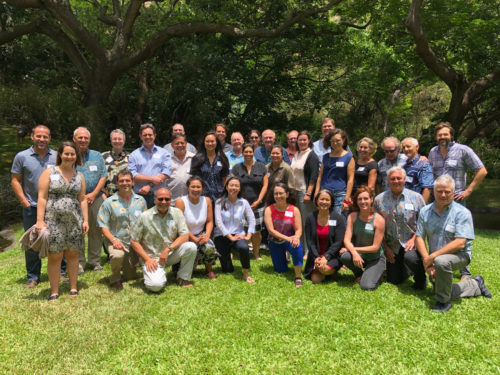Drought in the U.S.- Affiliated Pacific Islands
Brianne Walsh ·Three years ago, IAN began a national-scale effort with the USGS National Climate Adaptation Science Center (NCASC) to synthesize the impacts of ecological drought across the country. Workshops were held at each of the nation's eight regional Climate Adaptation Science Centers covering the following regions: Alaska, Pacific Islands, Northwest, Southwest, North Central, South Central, Northeast, and Southeast. During the Pacific Islands workshop in March 2017 in Honolulu, Hawaii, it became clear that the high islands of the Hawaiian archipelago were not representative of the diverse U.S.-Affiliated Pacific islands (USAPI), and so a ninth workshop was planned to capture aspects of drought in the islands.
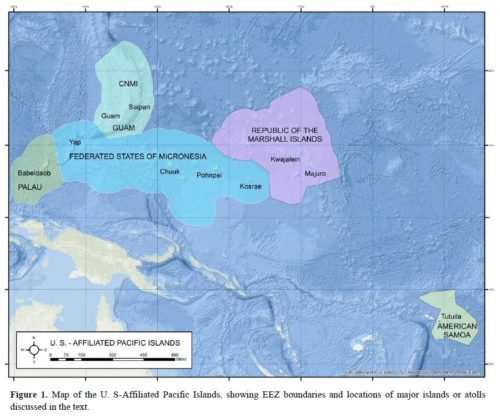
Simon Costanzo and I traveled to Honolulu, Hawaii, in August 2018 to facilitate this ninth workshop. The workshop was sponsored by the USGS Pacific Islands Climate Adaptation Center, and held at the East-West Center, adjacent to the University of Hawai'i at Manoa. The East-West Center promotes better relations and understanding among the people and nations of the United States, Asia, and the Pacific through cooperative study, research, and dialogue. Established by the U.S. Congress in 1960, the Center serves as a resource for information and analysis on critical issues of common concern, bringing people together to exchange views, build expertise, and develop policy options. The Center is an independent, public, nonprofit organization with funding from the U.S. government, and additional support provided by private agencies, individuals, foundations, corporations, and governments in the region. It was the perfect setting to host this workshop discussing past, current, and future impacts of drought, and needs for management throughout the USAPI.
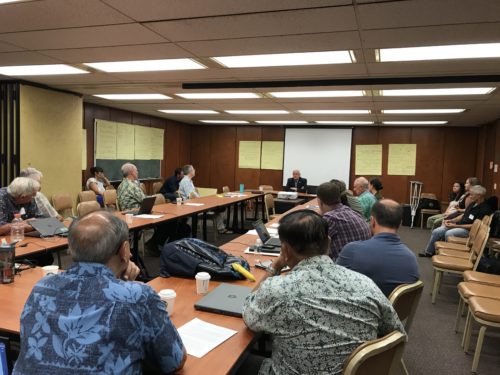
Our hosts, Dave Helweg (Senior Liasion for Insular Relations and former Director of the Pacific Islands CASC), and Janet Cushing (Acting Director of the Pacific Islands CASC) gave a wonderful introduction and welcome to kick off the two-day workshop. Shawn Carter (Acting Chief, USGS NCASC), Doug Beard (Associate Director for Land Resources), and Ryan Nichols (Advisor, Department of the Interior Office of Water and Science) introduced the importance of and need for this workshop to highlight the unique issues and threats to the USAPI, and next steps beyond the two-day workshop. Participants and speakers represented broad backgrounds and specialties, which allowed for in-depth discussions on climate, agriculture, water resources, socioeconomics, managed natural resources, ecosystems, wildfire, and drought monitoring across the USAPI. The agenda allowed for several short presentations followed by break-out sessions identifying drought impacts in four key areas: agriculture, water and humans, ecosystems, and needs for drought monitoring and data availability in the USAPI. The conversations from these breakout sessions will be translated into fact sheets that, once finalized, will be used for broader stakeholder education and engagement. We concluded the workshop by storyboarding a four-page newsletter that will further describe each of the themes discussed, regarding the impacts of drought in the USAPI and the importance of resilience and recovery. Stay tuned to IAN Press for the release of the workshop newsletter!
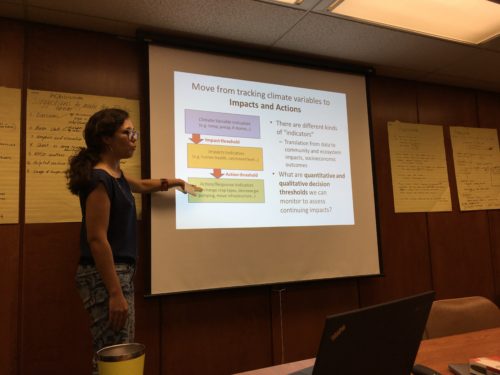
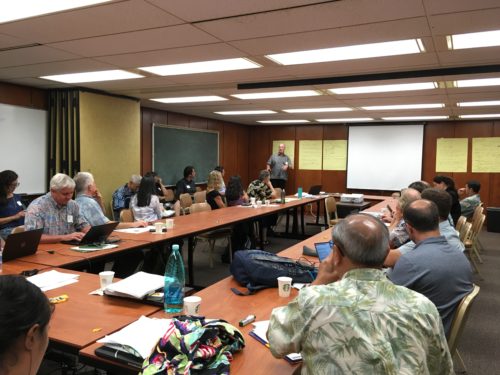
Finally, a big thank you to Bonnie Myers from NCASC for organizing the workshop, without whom the workshop would not have been possible.
